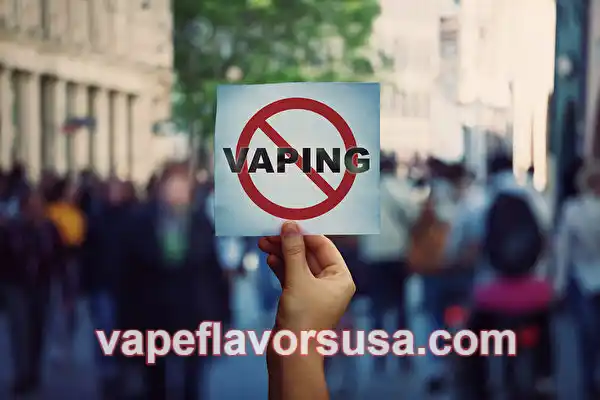Vaping is not only a growing trend, it’s a growing problem—especially among teenagers. And in Singapore, authorities are stepping up their efforts to tackle the surge of youth vaping that’s sweeping through schools and social media. Recent statistics reveal alarming figures: nearly 25% of vaping-related cases in the country involve minors. With the numbers rising, Singapore’s government is cracking down hard, deploying stricter laws, more awareness campaigns, and innovative solutions to combat this public health issue.
Vaping: A Legal Battle in Singapore
In Singapore, the sale, use, and possession of vapes—along with any related accessories—are strictly prohibited. Authorities have made it clear: vapes and e-cigarettes are illegal, and those caught breaking the law face heavy fines and even jail time. If you’re caught selling, importing, or distributing vapes, you could face fines of up to SGD 10,000 or a maximum of 6 months in prison—first offense. Repeat offenders? That fine doubles to SGD 20,000, and jail time can extend to 12 months.

But it’s not just the dealers and distributors who are under the spotlight. Anyone caught using, owning, or purchasing a vape can face fines of up to SGD 2,000. In the world of Singapore’s zero-tolerance policy, vaping is seen as a major public health risk, and authorities aren’t backing down. This legislation is more than just about punishment; it’s about prevention.
The Rise of Youth Vaping: A New Trend Among Teens
Vaping is becoming a problem primarily among younger people. A shocking 813 minors under the age of 18 were caught in the past five years for being involved in the illegal use, purchase, and possession of vapes, making up a staggering 25% of all offenders in that age group. The numbers are on the rise, and authorities aren’t taking this lightly.

A significant factor contributing to the rise in youth vaping is the easy availability of vapes online. Social media platforms and e-commerce sites have turned into hotspots for vape sellers targeting younger, tech-savvy customers. Some even go as far as bringing vapes back into Singapore after traveling abroad, effectively bypassing local laws.
Singapore’s Response: A Comprehensive Plan of Action
Faced with the growing epidemic of teen vaping, Singapore’s health and education officials are doubling down on measures to both stop the spread and offer help to those already addicted.
Education and Prevention: Partnering with Schools
The government is tackling the issue head-on by working closely with schools and educational institutions. The Ministry of Health (MOH) and the Health Promotion Board (HPB) have teamed up with the Ministry of Education (MOE) to launch comprehensive prevention programs aimed at raising awareness among students about the dangers of vaping.

Health Minister Ong Ye Kung recently revealed that a big part of their strategy includes providing support for teens who want to quit vaping. The QuitLine program and remote counseling services are available for students, while face-to-face consultations with school health advisors are offered to give them the tools to break free from nicotine addiction.
It’s not just about giving information—it’s about giving support. In 2023 alone, more than 2,350 teens participated in counseling and quitting programs. The results have been promising: about 38% of those who attended counseling sessions reported a reduction in vaping habits or quit altogether after just one month of support.
Stronger Border and Public Surveillance: Cracking Down on Smugglers
One of the key strategies to reduce vape usage in Singapore is stepping up border security. In December 2023, customs officials discovered more than 200 vapes and related accessories stashed in a car entering Singapore through the Tuas checkpoint. This haul was worth over SGD 200, and four individuals—aged between 16 and 24—were arrested. Their crime? Attempting to smuggle illegal vapes into the country. These types of border smuggling cases are becoming increasingly common, and the authorities are now ramping up checks at key entry points, including Changi Airport, land crossings, and even sea checkpoints.
But stopping vapes at the border isn’t enough. Authorities are also increasing their presence in public spaces where vaping is known to happen frequently. Public hotspots like shopping malls, parks, bars, and clubs will see more frequent checks, with security personnel actively searching for vape users. These are locations where the youth often gather and where vaping is often seen as socially acceptable. By reinforcing these public areas, officials are hoping to deter both teens and adults from vaping in public.
Social Media and Online Sales: The Digital Frontier
Social media and online platforms are a major selling point for vape products. With influencers on platforms like Instagram, TikTok, and even YouTube pushing vape-related content, vaping is being normalized in the eyes of young people.

Singapore is keenly aware of this trend and has started collaborating with the Ministry of Communications and Information, along with the Infocomm Media Development Authority, to clamp down on online sales and advertisements for vapes. They’re working to improve their ability to detect and remove illegal vape-related content across social media and e-commerce platforms.
This is no small task, given the global nature of the internet. But it’s a necessary move in the ongoing battle against teen vaping.
School Measures: A Zero-Tolerance Policy
Singapore is taking a tough stance when it comes to student use of vapes. If a student is caught vaping, the vape is confiscated, and their parents are immediately notified. But the consequences don’t stop there. The Health Sciences Authority (HSA) reports the case to the relevant authorities, and the student’s actions are dealt with according to the school’s existing disciplinary framework. In some cases, this may include suspension or even corporal punishment, as prescribed by school policy.
Beyond punishment, however, there’s a focus on rehabilitation. Students caught vaping are enrolled in smoking cessation programs, where they receive counseling and support to help them quit. This approach aims to help students break free from addiction and develop healthier habits in the long run.
Public Education: Raising Awareness Among Adults and Teens
It’s not enough to simply enforce the law. Public education plays a critical role in this multi-pronged approach to combatting youth vaping. The government has been ramping up its efforts to educate both teens and adults about the health risks associated with vaping.
Vapes may seem like a safer alternative to smoking traditional cigarettes, but they still contain harmful chemicals, many of which can pose long-term health risks. Second-hand exposure to vape aerosol can also harm others around you. The Health Ministry and the HSA are emphasizing that, despite the “cool factor,” vapes are far from harmless.
A Tough Road Ahead
Despite these comprehensive measures, Singapore still has a long road ahead. The rise of youth vaping is a global issue, and with the digital age, it’s easier than ever for minors to access these products. Authorities will need to continue adapting to emerging trends and work harder to close any loopholes in the law. However, with the combined efforts of health organizations, law enforcement, and educational institutions, Singapore is sending a strong message: it’s time to put a stop to teen vaping before it becomes an even bigger epidemic.
For now, the message is clear: vaping in Singapore is illegal, and getting caught can have serious consequences. But more than that, it’s about protecting young people from the dangers of nicotine addiction and promoting a healthier future for the next generation. The government’s zero-tolerance stance and comprehensive education campaigns are steps in the right direction, and with continued support, it’s hoped that the vaping epidemic will soon be under control.
As authorities continue to crack down on the vape trade, it’s up to society to step in and support both teens and adults in the fight against nicotine addiction. After all, it’s not just about catching offenders—it’s about changing minds and saving lives.

